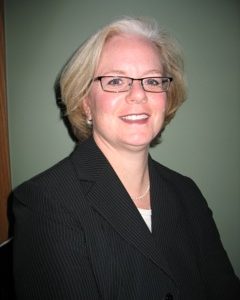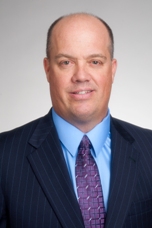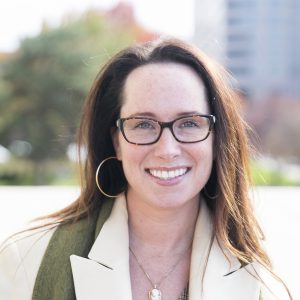As part of NACSA’s 2015 annual survey, we asked authorizers for their perspectives and practices on issues at the intersection of authorizing and special education. We asked about oversight practices, what they do when problems in service delivery are uncovered, their perspectives on charter school enrollment proportionality and school autonomy, and more. We encourage you to explore the full data release, which begins on page 43 of the annual survey.
We learned a lot—both positive and not so positive—that can be used to help authorizers and schools ensure that student and public interests are protected.
We also asked four national experts to share their thinking on the findings and their implications for authorizing, special education, and charter schools.
- Lauren Morando Rhim from the National Center for Special Education in Charter Schools points out that autonomy and accountability is not an either/or proposition, and questions what else authorizers and states should be doing to ensure equitable access.
- Robin Lake from the Center on Reinventing Public Education points out strengths and challenges she observes in the data and also speaks to the tension—and offers solutions that some are already using—on how equity in special education can be created.
- Alex Medler, an independent consultant working with the National Charter School Resource Center, provides advice so that special education and charter school issues are not oversimplified, and offers policy solutions to vexing challenges.
- Azure Angelov from Goodwill Education Initiatives points out that improvements in authorizer application practices should be a priority, and that effectively implementing federal IDEA provisions is challenging for everyone.
We invite you to dig into these unique perspectives. We hope you find the data stimulating and the commentaries informative.
Lauren Morando Rhim, Ph.D.

Executive Director and Co-Founder, National Center for Special Education in Charter Schools
I commend NACSA for asking charter school authorizers key questions about special education. Authorizers are the gatekeepers of the charter sector. Ensuring they are knowledgeable about requirements for educating students with disabilities—and poised to take action should charter schools fall short—is essential to ensuring all students are provided equal access to the sector.
With that in mind, I was encouraged to see that the majority of surveyed authorizers think charter schools should enroll roughly the same proportion of students with disabilities as traditional districts schools and collect enrollment as well as performance data. While imperfect—for instance, many districts over identify students with disabilities—proportionality is a readily available proxy for equity.
However, three data points cause concern: in combination, they indicate that many of the responding authorizers do not 1) require special education outcomes as part of charter performance contracts; 2) see persistent failure to serve students with disabilities as a behavior that merits serious consequence; or 3) identify themselves as responsible for enforcing special education enrollment proportionality.
Together, these responses naturally lead to these questions:
- If many authorizers are not tracking these data or willing to meaningfully hold charter schools accountable (i.e. threaten to revoke or non-renewal) for persistent violations related to special education, what in practice is the real consequence for schools failing students with disabilities?
- Is the apparent lack of accountability simply a by-product of layering new types of schools onto old accountability structures and would more knowledge lead to more robust accountability?
- Or conversely, are states and authorizers implicitly or explicitly deciding they do not need to hold charter schools accountable for equitable access and quality programs for students with disabilities?
At the National Center for Special Education in Charter Schools, we see charter schools as important players in the increasingly diverse portfolio of public options for all students. We also appreciate that deregulation is a central component of the positive innovations that have emerged from the sector.
However, we do not see autonomy and accountability as an either/or proposition. We would argue that authorizers should require and actively monitor enrollment and performance data, disaggregated by subgroup, in line with the spirit of state laws. Authorizers should also be communicating to school leaders and school boards that failure to enroll and provide quality programs to all students—including students with disabilities—will, in fact, have tangible consequences.
Ensuring that all students can access and thrive in the charter sector is central to the sector’s credibility as a viable option at scale across the nation.
Robin Lake

Director, Center on Reinventing Public Education, University of Washington
Authorizers have an essential role to play in assuring that charter schools follow all special education laws and produce great results for kids with disabilities. For that reason, I was very glad to see NACSA surveying and publishing information about how authorizers oversee special education.
On the positive side, most authorizers surveyed are collecting and monitoring special education enrollment data. These authorizers generally (nearly three-quarters) believe that charters should enroll students with disabilities at rates representative of the community. Yet only half believe that authorizers should enforce proportionate enrollment. On its face, this may seem problematic, but the reasons to be dubious about enrollment quotas are legitimate and well documented.
That said, authorizers have other avenues for ensuring representativeness of the community and responsiveness to the community’s needs that do not infringe on charter autonomy. As Massachusetts has done, authorizers can focus on level of effort, tracking recruitment and marketing strategies to make sure schools are known to families and open and welcoming to students with special needs.
Authorizers can also act to enforce open admissions by
- following up on reports/complaints to make sure schools are not dissuading students with disabilities from applying;
- assessing a school’s understanding of the laws in the application process;
- employing a secret shopper program or other audits to prevent this practice or catch schools in act;
- making sure that school application and enrollment materials don’t inappropriately screen for IEP status.
These are all far more effective avenues for authorizers to pursue in the name of equity than quotas. I hope future NACSA surveys will ask about actions like this as well as uncover new, promising oversight strategies on special education.
In the meantime, there is obviously much work ahead for NACSA, for disability advocates, and for leaders in the charter community to make sure that authorizers do their part in promoting special education transparency, equal access, and effectiveness. Survey findings include the following:
- Nearly 20 percent of authorizers don’t collect or monitor special education enrollment data.
- Even more (37 percent) don’t report those numbers.
- Half don’t report student outcomes for students with disabilities.
- Only 13 percent say they would close a school for persistent special ed violations.
- Just over a quarter of respondents would be willing to require a school to change its staffing, policies, or practices in order to address special education challenges.
So it seems that authorizers are generally unwilling to close a school that is failing to comply with federal or state law, but they are also unwilling to require the school to make changes to its special education program, presumably because the authorizers see this as infringement on charter autonomy.
While I’m glad to see that authorizers’ first choice is to connect schools to special education expertise, in the case of persistent problems, more serious action is warranted. Authorizers can also avoid having to step in on the back end by more attention to prevention during the application process, for example, requiring schools to simply describe their marketing/outreach plans for students with disabilities (only a quarter of authorizers surveyed do this now).
Thoughtful authorizing that recognizes the nuance of special education choices and respects charter autonomy is an important goal, but as NACSA’s survey shows, authorizers have work ahead to achieve it.
Alex Medler

Senior Director, National Charter School Resource Center; Board Chair, National Center for Special Education in Charter Schools (Note: Opinions expressed are his own)
NACSA’s recently released survey data about authorizers’ special education attitudes and practices raises more questions than answers. However, there are a few findings that are disturbing and immediately actionable. Among the surveyed authorizers:
- 11 percent do not collect data on the enrollment of students with disabilities;
- 17 percent do not monitor the percentage of students with disabilities who are enrolled; and
- 19 percent do not collect or receive outcome data on students with disabilities.
Regardless of all the things we might disagree about, this part is just not O.K. We should fix it. Federal and state law should be adjusted to clarify the requirement that all authorizers collect and monitor data on enrollment and outcomes of students with disabilities.
Such requirements are already the case, or at least they are implicit in all current state and federal charter school laws. But apparently, these policies are inadequate to ensure all authorizers implement these basic practices. Authorizers that refuse to do this should face sanctions.
A previous change in federal law established a requirement that all authorizers receive yearly financial audits from every school they oversee. It was enacted after NACSA surveys found a similar proportion of authorizers also abdicated this basic responsibility. The new requirement quickly had the desired effect: in subsequent surveys, 100 percent of authorizers reported receiving financial audits. This change doesn’t mean that financial oversight of charter schools is always sufficient, or that some authorizers don’t try to meddle in financial decisions that should be left to the school. But at least all authorizers now have data they should have had to begin with.
That change was good for charter schools, the charter sector, and the public interest. Based on this experience, I am confident we can help the sector do better for students with disabilities without infringing on autonomy or innovation.
Other issues will be trickier to solve; and I am certain that charter opponents will eagerly oversimplify this issue. But if authorizers have this data, the tricky work will more likely be based on empirical reality, rather than just finger pointing or storytelling. As we consider what to do more broadly, we must be clear on the following:
- Enrollment rates of students with disabilities in charter schools should be similar to traditional public schools, but it is not likely—or necessarily even good—that they be equal.
- Students with disabilities are not distributed evenly among schools in general.
- Authorizers should differentiate between schools doing a really poor job with special education and those looking to do things differently.
- Oversight must respect autonomy while strengthening accountability.
- Charters are schools of choice and the schools can’t always affect the choices families make.
The vast majority of authorizers gathers and monitors this data now. But authorizers that don’t even know what is going on cannot argue they are doing their job. All they can say is, “We have chosen to abdicate our responsibility.” That should not be allowed.
Azure D.S. Angelov, Ph.D.

Goodwill Education Initiatives
Students with IEPs and undocumented exceptionalities deserve just as many high-quality options as their typically developing peers.
Authorizers play a powerful role in supporting proposed new charter schools by requiring applicants to articulate how they will support all students—students with IEPs in particular.
By requiring schools to provide comprehensive descriptions of special education services in their applications, authorizers lay the ground work for a school to be more informed and aware of the realities of offering high-quality special education programs and services that align with their mission and vision. A proactive, hearty application process is the best asset for ensuring all students in an authorizer’s portfolio are getting the best possible education.
Survey data provided by NACSA suggests there is more to be done to ensure that students with IEPs in new schools are set up for success. Only 25 percent of surveyed authorizers require applicants to have marketing/outreach plans for students with IEPs; only 36.8 percent require applicants to demonstrate commitment to strong student outcomes by specifying outcomes for students with IEPs. While authorizers collect written assurances that schools will follow federal and state laws specific to students with IEPs (including federal law that specifies academic improvement for most students with IEPs), it’s unclear why a relatively low proportion of authorizers don’t use more tools to understand applicant plans for recruiting students with IEPs or ensure applicants have a high bar for outcomes.
Many of the realities that schools navigate when providing services make it almost impossible for any one educational entity to offer everything for everyone at a high level of quality. There are several documented and relevant stress points that make special education especially tricky to implement that authorizers and schools should be mindful of:
- IDEA is only partially funded. It has never been fully funded, though it has been fully implemented. All schools struggle to reconcile what they want to offer with the resources they are provided.
- No one has an easy road when it comes to special education: not the school, not the teachers, not the family, not the student. No one has it all figured out and everyone is strained by navigating special education procedures.
- The law requires families and schools to select from a full spectrum of services to make placement decisions, but current advocacy primarily supports full inclusion. Additionally, the field is still haunted by a past that included the eugenics movement and institutionalization. Everyone struggles to understand and articulate the realities of authentically offering a full spectrum of special education services at the building level.
In spite of the overwhelming odds, most schools want to provide a high-quality educational experience for all students. Authorizers are key to ensuring that only applicants well prepared to serve students with IEPs are given that privilege. Along with many other advocates with a passion for ensuring that students with IEPs are served at high levels in charter schools, I look forward to working with all stakeholders in public education to ensure that is accomplished.



